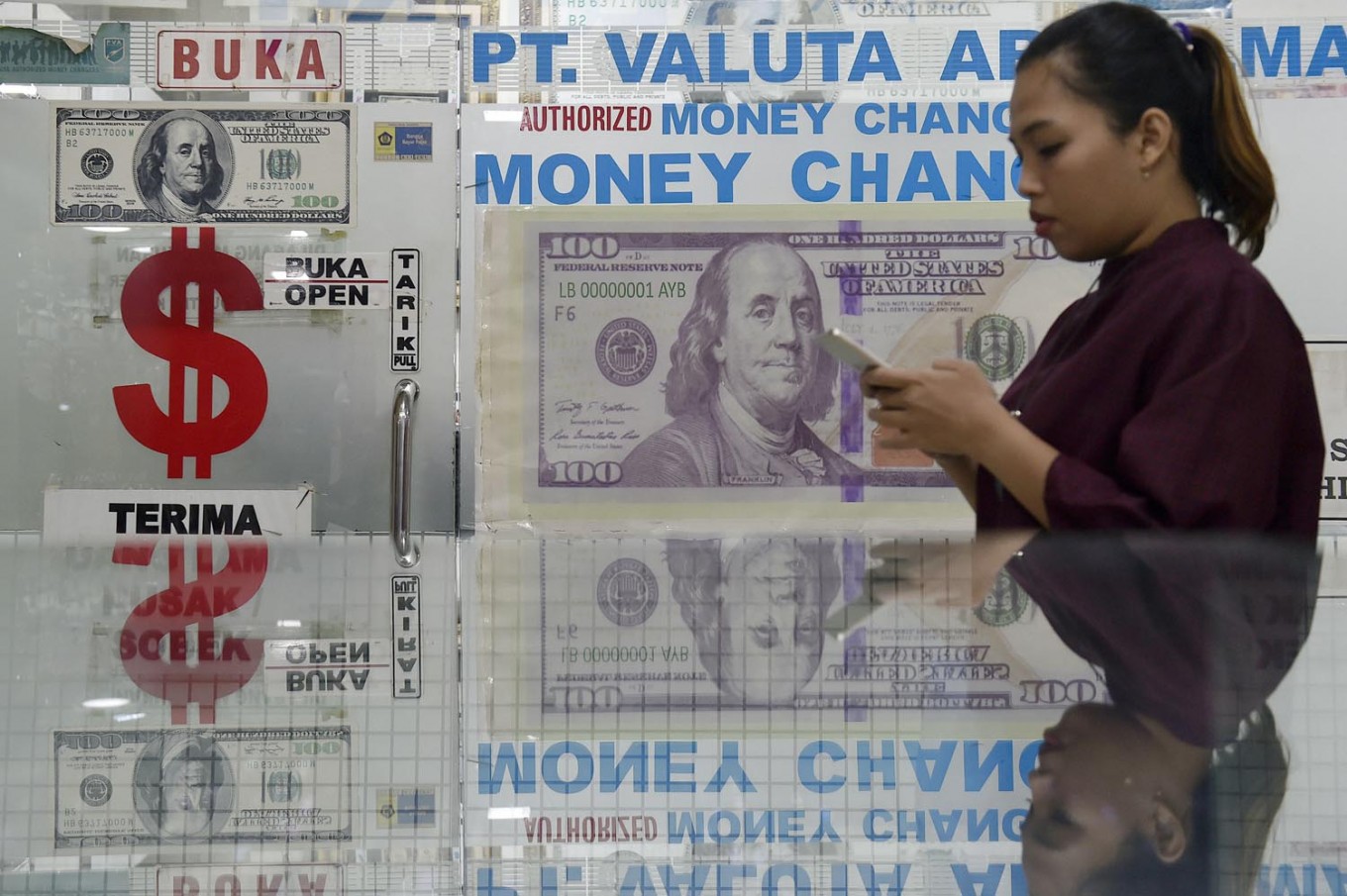EDITORIAL: Time to raise interest rate
Last week, the rupiah neared the psychological barrier of 14,000, the lowest level in two years, after hitting 13,700 early in April.
Change Size
 The fall in the rupiah exchange rate and composite index last week raised concerns over Indonesia’s ability to cope with the risks resulting from the growing uncertainties in the global economy. (Antara/Puspa Perwitasari)
The fall in the rupiah exchange rate and composite index last week raised concerns over Indonesia’s ability to cope with the risks resulting from the growing uncertainties in the global economy. (Antara/Puspa Perwitasari)
T
he fall in the rupiah exchange rate and composite index last week raised concerns over Indonesia’s ability to cope with the risks resulting from the growing uncertainties in the global economy. We acknowledge that Bank Indonesia (BI), the central bank, and its partner the Financial Services Authority (OJK) have taken every path to protect our economy against the global risks. The central bank, for example, has required companies to hedge their foreign debts in order to mitigate the exchange rate risks, while the OJK has issued a number of regulations to make the banking system more resilient to global financial shocks. The plunge in the rupiah’s value and share prices shows the vulnerability of our financial system to external risks.
Last week, the rupiah neared the psychological barrier of 14,000, the lowest level in two years, after hitting 13,700 early in April. The Jakarta Composite Index (JCI), the main price indicator at the Indonesia Stock Exchange (IDX), fell by nearly 7 percent to close the week at 5,909.
Financial market observers said the sharp drop in the rupiah exchange rate and share prices was caused by a wave of foreign funds moving away from the country’s financial markets. Many foreign investors shifted their investments overseas to take advantage of the soaring increase in the yields of United States treasury bills, which have been on an upward trend since the US Federal Reserve further upped its benchmark rate by another 25 basis points in March to a range of 1.50 to 1.75 percent.
The Fed is expected to raise the rate three times this year as initially planned, but analysts predict that a fourth increase looms as inflation is rising. Meanwhile BI maintained its interest rate at 4.25 percent in March despite the hike in the US interest rate. With the low interest rate, Indonesia is no longer an attractive destination for global portfolio investment.
BI reportedly sold US dollars and bought sovereign banks to halt the fall of the currency, but the intervention is unlikely to be effective in coping with the long-term impacts of the Fed rate rises. The central bank’s market intervention will only dry up the country’s foreign exchange reserves, which have continued to decline since January this year.
Foreign reserves remained at a safe level of US$126 billion as of the end of March, equal to 7.9 months of imports. However, the reserves will further worsen in the coming months if the central bank continues using its market operation in stabilizing the rupiah
With the Fed’s plan to escalate the interest rate hike, BI has few choices but to follow the Fed’s move to prevent capital outflow, as using the foreign exchange reserves would exacerbate the problems in Indonesia’s economy.
The Fed’s interest rate hike is certainly not the only threat Indonesia has to deal with. The uncertainties resulting from protectionist trade policies around the world will also seriously affect Indonesia’s economy. But raising the interest rate will at least help us solve one of the problems.








